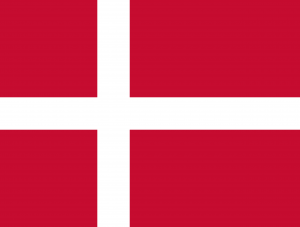Welcome to this exciting lesson on Danish Culture and Religion! Understanding religion is essential for grasping the broader cultural context of Denmark, a country where traditions and beliefs intertwine seamlessly with daily life. As you embark on this journey, you’ll learn how religion shapes Danish society, influences its customs, and reflects in its language.
In this lesson, we will explore the following topics:
- The dominant religion in Denmark
- Key religious practices and holidays
- The role of religion in Danish culture
- Secularism and its impact on society
- Introduction to religious vocabulary
By the end of this lesson, you’ll have a solid understanding of how religion plays a role in Danish life, and you’ll be able to use relevant vocabulary and phrases.
The Dominant Religion in DenmarkEdit
Denmark is known for its strong Lutheran roots, primarily due to the influence of the Evangelical Lutheran Church of Denmark (Folkekirken). About 75% of Danes are members of this church, although many are not actively practicing.
Overview of the Evangelical Lutheran ChurchEdit
The Evangelical Lutheran Church is characterized by its focus on grace, faith, and the authority of the Bible. Services are generally conducted in Danish, and the church plays a significant role in major life events such as baptisms, weddings, and funerals.
- Baptism: Almost all Danish children are baptized in the church soon after birth. It's a significant cultural event, even for those who may not practice religion actively.
- Confirmation: Around the age of 13, many Danish children undergo confirmation, which is viewed as a rite of passage into adulthood.
- Weddings and Funerals: Religious ceremonies are common for weddings and funerals, although secular options are increasingly popular.
Key Religious Practices and HolidaysEdit
Danish culture is rich with traditions tied to religious observances. Here are some significant holidays:
Christmas (Jul)Edit
Christmas in Denmark is celebrated with both religious and cultural elements. The holiday season includes traditions like advent candles, Christmas trees, and the famous Danish Christmas feast.
- Advent: The four Sundays leading up to Christmas are marked by lighting candles and special family gatherings.
- Julefrokost: The traditional Christmas lunch, often featuring herring, liver pate, and gløgg (mulled wine).
Easter (Påske)Edit
Easter is celebrated with various customs, including church services and family gatherings.
- Palm Sunday: Marks the beginning of Easter week, often celebrated with the decoration of branches.
- Easter Eggs: A fun tradition where children decorate eggs and participate in egg hunts.
The Role of Religion in Danish CultureEdit
While many Danes identify as Lutheran, the actual practice of faith varies significantly. Denmark is one of the most secular countries in the world, with many people embracing a more humanistic or atheistic viewpoint.
- Secularism: In Denmark, religion is often seen as a personal matter. This secular approach has led to a society where religious beliefs are respected but not imposed.
- Cultural Celebrations: Many holidays have both religious and secular meanings, reflecting the blending of traditions.
Introduction to Religious VocabularyEdit
Here are some terms and phrases related to religion in Danish:
| Danish | Pronunciation | English |
|---|---|---|
| kirke | /ˈkʰiʁɡə/ | church |
| præst | /pʁɛst/ | priest |
| tro | /tʁo/ | faith |
| bøn | /bøn/ | prayer |
| gud | /ɡuð/ | God |
| helligdag | /ˈhɛliˌdɑː/ | holiday |
| jul | /jʊl/ | Christmas |
| påske | /ˈpʌːskə/ | Easter |
| konfirmation | /kʌnfiʁmaˈt͡sjɔːn/ | confirmation |
| dåb | /doˀb/ | baptism |
Exercises and Practice ScenariosEdit
To help reinforce your learning, here are some exercises:
Exercise 1: Vocabulary MatchingEdit
Match the Danish words with their English meanings.
1. kirke
2. bøn
3. dåb
4. jul
5. konfirmation
Solutions:
1. Church
2. Prayer
3. Baptism
4. Christmas
5. Confirmation
Exercise 2: Fill in the BlanksEdit
Complete the sentences with the correct words from the vocabulary list.
1. The _______ is a place of worship. (kirke)
2. Many Danes celebrate _______ with family traditions. (jul)
3. A _______ is performed for babies soon after they are born. (dåb)
Solutions:
1. church
2. Christmas
3. baptism
Exercise 3: Sentence CreationEdit
Create sentences using the following words: "præst", "tro", "helligdag".
Example:
- The priest leads the service on holidays.
- My faith is important to me.
Exercise 4: True or FalseEdit
Determine if the following statements are true or false.
1. Christmas is not celebrated in Denmark. (False)
2. Almost all Danish children are baptized. (True)
3. The majority of Danes actively practice their faith. (False)
Exercise 5: Discussion QuestionsEdit
Discuss the following questions with a partner or write down your thoughts:
1. How do you think religion influences Danish culture?
2. What are some similarities and differences between Danish religious practices and those in your country?
Exercise 6: Vocabulary QuizEdit
Translate the following words into Danish:
1. God
2. Faith
3. Easter
Solutions:
1. Gud
2. Tro
3. Påske
Exercise 7: Role PlayEdit
In pairs, role-play a conversation between a priest and a member of the congregation discussing the importance of confirmation.
Exercise 8: Research TaskEdit
Research one Danish holiday and write a short paragraph about its significance and how it is celebrated.
Exercise 9: Listening ExerciseEdit
Listen to a song or a sermon in Danish and try to identify words related to religion.
Exercise 10: ReflectionEdit
Reflect on what you learned in this lesson. Write down three things that stood out to you about Danish culture and religion.
Remember, learning a language is not just about vocabulary and grammar; it’s also about understanding the culture behind it. Engaging with the cultural aspects of Denmark will make you a more proficient speaker and enrich your overall experience.
I hope you enjoyed this lesson on Danish culture and religion. It’s a fascinating topic that reveals much about the Danish way of life. Keep practicing, and see you in the next lesson!
Other LessonsEdit

